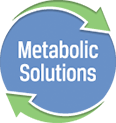Hydrogen Breath Test for Detecting Small Intestinal Bacterial Overgrowth (SIBO)
The best way to determine the presence of SIBO is to perform a hydrogen breath test. This simple procedure requires administering a challenge substrate (either lactulose or glucose), collecting patients’ breath samples with an easy to use straw and tube method, and sending the samples to our lab for measurement of hydrogen and methane levels. Test kits can be used in your office or sent home with your patient. A prepaid mailer to return the breath samples to the lab comes with each kit. Upon arrival, tests are analyzed and a report faxed or emailed to you within 24 hours of test receipt.


